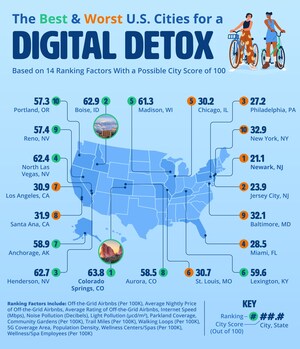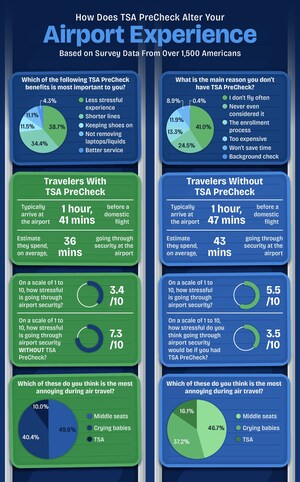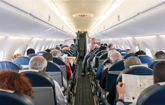
Recent Data Study Reveals Best and Worst Airlines for Flying With Pets
One airline in particular showed steep decline in pet passengers.
AUSTIN, Texas, June 25, 2019 /PRNewswire/ -- In its newest informative study, Upgraded Points presented the best and worst airlines to fly with pets. Based on current available U.S. Department of Transportation (DOT) data regarding pet incidents from 2017–2018, the study ranked the airlines while also revealing some pet-transport declines involving United Airlines.
Analysis Methodology
With the increasing ubiquity of pets as airline passengers, pet-related incidents have also begun to rise. Consequently, air carriers shift polices to reflect this new influx of non-human passenger challenges, with some changes resulting in better carrier experiences than others. The DOT keeps a detailed list of animal incidents on carriers, including injuries to and losses of any animals transported by an airline. This DOT data also tracks the most tragic of such pet-related events: animal passenger deaths. These incident rates were used to inform the Upgraded Points study.
Incident rates represent important data, as they directly illustrate how many incidents air carriers experience related to the number of pets transported. For example, an air carrier that transported 100 pets, and experienced one injury or death, would have a one percent incident rate. DOT-reported incidents do not always present a complete picture of events, but they are a reliable indication of effective pet policies vs those that are far less effective. It is also important to note that only animals considered as pets are included in these DOT monthly reports.
Animals shipped by cargo (laboratory animals or those destined for sanctuaries) are not included. Additionally, some airlines will not fly pets as cargo at all and are thus excluded from these findings. The overall DOT report from 2018 represents over 400,000 animals traveling via air.
Best and Worst Pet-Tolerant Airlines for 2017–2018
- Best — Alaska Airlines: Although the airlines did report one injury for 2018, it transported 143,634 animals total. That is 34 percent of all animals transported by all airlines, thus giving the carrier's incident rate per 10,000 animals flown at only .07 — or a .0006 percent overall incident rate. Alaska Airlines has the best track record for both 2017 and 2018.
- Worst — Hawaiian Airlines: With three reported animal deaths and only 9,505 animals transported, Hawaiian Airlines incident rate sits at .03 percent, giving it the worst track record for 2018.
In an additional finding, the DOT reported that United Airlines had a 27 percent drop in pets transported between 2017 and 2018. This represents a stark 16 percent reduction in reported United pet transports from 2017. Pet owners clearly chose to fly on other airlines during that time — reflected in Alaska Airlines and Delta data.
"It is interesting to note that 2017 was a particularly dramatic year for United, with multiple high-profile pet incidents," said Upgraded Points founder, Alex Miller. "The data does indeed suggest that this may have coaxed passengers into trying other airlines, as declines in pet passengers for United resulted in direct corresponding sharp increases of pet passengers for other carriers during that time period."
For a full list of airlines reported, detailed graphics and information, as well as traveling tips, please visit here.
About Upgraded Points LLC
Headquartered in Austin, Texas, Upgraded Points is a travel company that provides insider strategies on maximizing travel points and rewards. Launched in 2016 by Alex Miller, Upgraded Points uses targeted research efforts and in-depth studies to give travelers, as well as those looking to travel a real understanding of how to maximize their points and miles. Learn more at: UpgradedPoints.com.
Contact:
Alex Miller, Founder
214-646-8866
[email protected]
SOURCE Upgraded Points LLC








Share this article